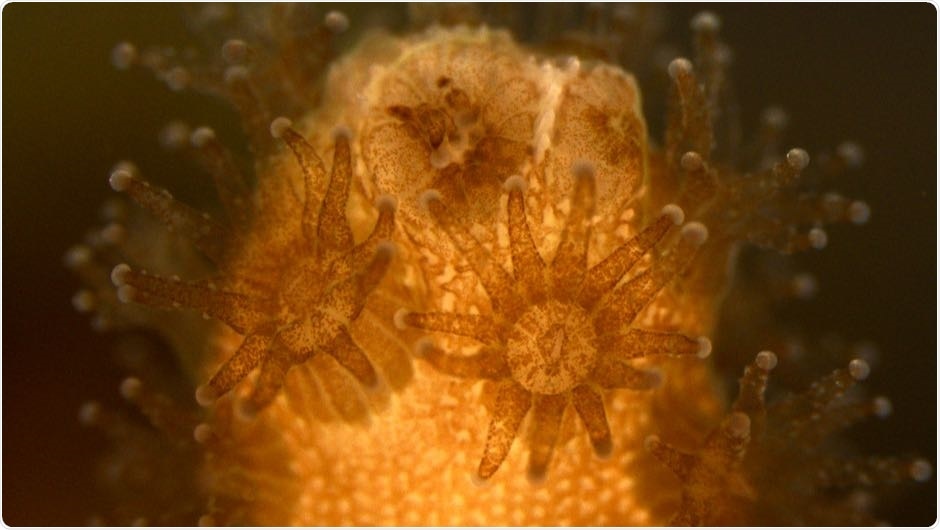Researchers from the University of Miami (UM) Rosenstiel School of Marine and Atmospheric Science and the Ben Gurion University of the Negev have isolated unique immune cells in the cauliflower coral and starlet sea anemone that can help fight infection.

A cauliflower coral (Pocillopora damicornis), one of the species studied to uncover these specialized immune cells. Image Credit: Michael Connelly, PhD, Cnidarian Immunity Laboratory, University of Miami Rosenstiel School of Marine and Atmospheric Science.
The results of the new study are crucial to gain better insights into how reef-building corals and other reef animals safeguard themselves from foreign invaders such as viruses and bacteria found in and around coral reefs.
The team discovered that immune cells constitute almost 3% of the total cell population and that they feature at least two populations of immune cells that carry out functions exclusive from digestion.
These findings are important because they show that corals have the cellular capabilities to fight infection and that they have unique cell types that were previously not known.”
Nikki Traylor-Knowles, Assistant Professor of Marine Biology and Ecology, Rosenstiel School, University of Miami
Traylor-Knowles is also the co-senior author of the study.
The researchers unraveled these unique immune cells by exposing foreign particles like bacteria, beads, and fungal antigens into a cauliflower coral (Pocillopora damicornis) and starlet sea anemone (Nematostella vectensis) in the lab. Then, they employed a process known as fluorescence-activated cell sorting to isolate different cell populations.
They discovered that unique cells, called phagocytic cells, swamped the foreign particles. On the other hand, small, fluid-filled structures within the cells, known as phagosomes, worked to eliminate the invaders along with their own damaged cells.
Immune systems in animals offer a vital protective defense response to identify and eliminate foreign substances in their tissues.
We need to have a better understanding of how coral cells perform specialized functions such as fight infections as the climate change crisis drastically reduces global coral reef biomass and diversity worldwide. Our findings can help in the development of diagnostic tools for assessing coral health.”
Nikki Traylor-Knowles, Assistant Professor of Marine Biology and Ecology, Rosenstiel School, University of Miami
Source:
Journal reference:
Snyder, G. A., et al. (2021) Functional Characterization of Hexacorallia Phagocytic Cells. Frontiers in Immunology. doi.org/10.3389/fimmu.2021.662803.